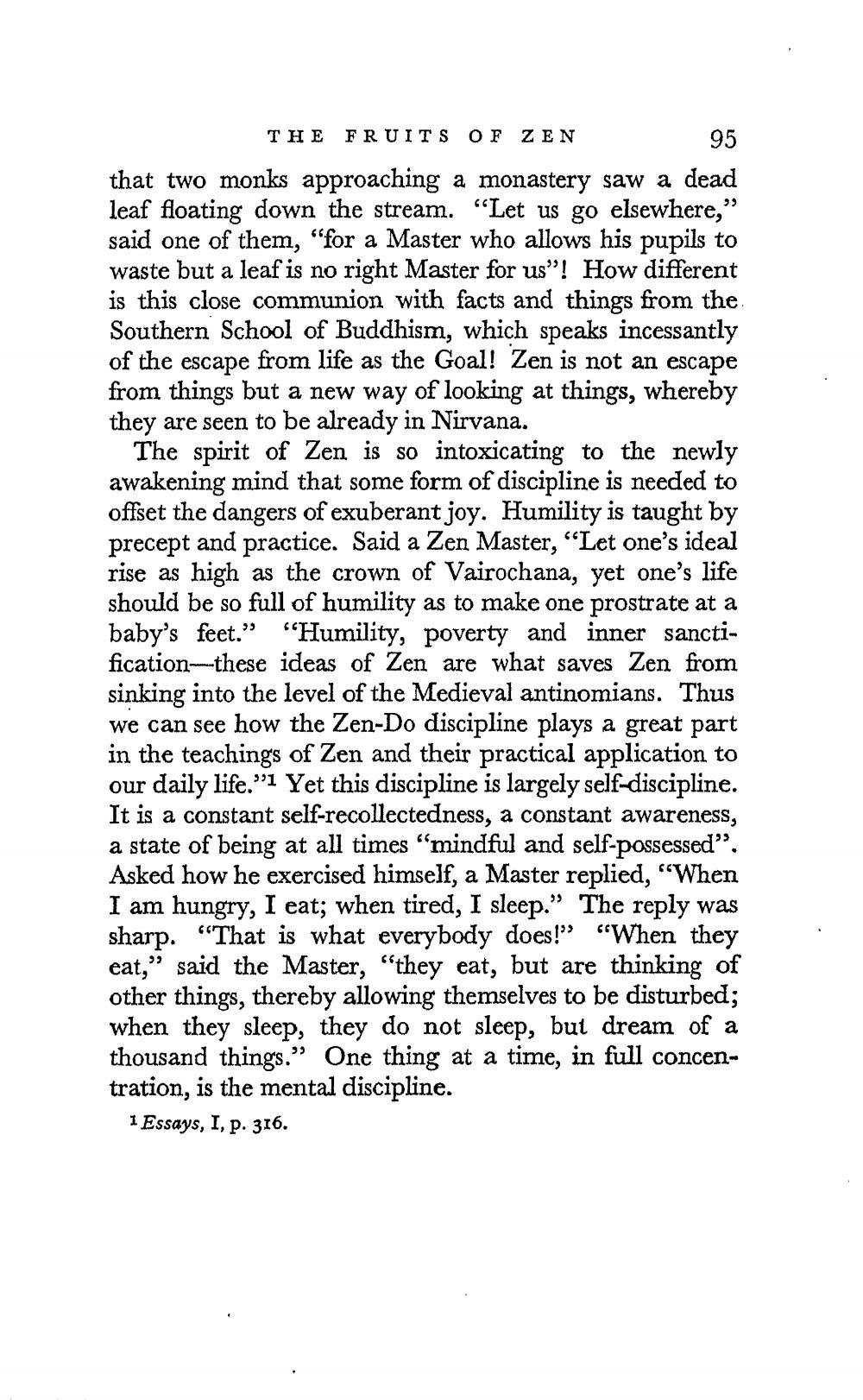________________
THE FRUITS OF ZEN
95
that two monks approaching a monastery saw a dead leaf floating down the stream. "Let us go elsewhere,” said one of them, "for a Master who allows his pupils to waste but a leaf is no right Master for us”! How different is this close communion with facts and things from the Southern School of Buddhism, which speaks incessantly of the escape from life as the Goal! Zen is not an escape from things but a new way of looking at things, whereby they are seen to be already in Nirvana.
The spirit of Zen is so intoxicating to the newly awakening mind that some form of discipline is needed to offset the dangers of exuberant joy. Humility is taught by precept and practice. Said a Zen Master, “Let one's ideal rise as high as the crown of Vairochana, yet one's life should be so full of humility as to make one prostrate at a baby's feet." "Humility, poverty and inner sanctification these ideas of Zen are what saves Zen from sinking into the level of the Medieval antinomians. Thus we can see how the Zen-Do discipline plays a great part in the teachings of Zen and their practical application to our daily life."'1 Yet this discipline is largely self-discipline. It is a constant self-recollectedness, a constant awareness, a state of being at all times "mindful and self-possessed”. Asked how he exercised himself, a Master replied, "When I am hungry, I eat; when tired, I sleep.” The reply was sharp. "That is what everybody does!" "When they eat," said the Master, “they eat, but are thinking of other things, thereby allowing themselves to be disturbed; when they sleep, they do not sleep, but dream of a thousand things.” One thing at a time, in full concentration, is the mental discipline.
1 Essays, I, p. 316.




